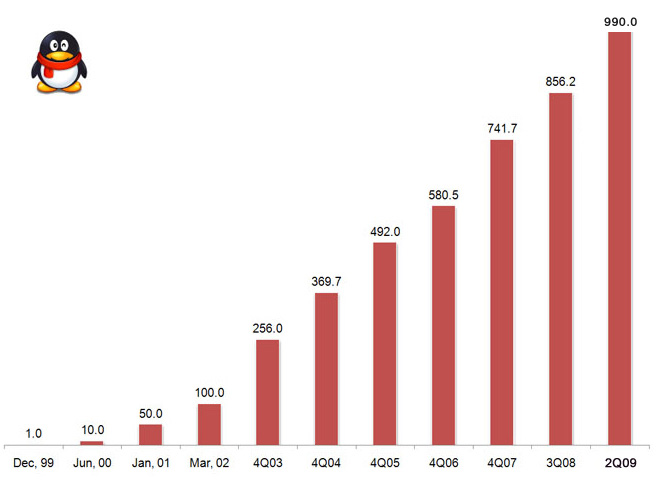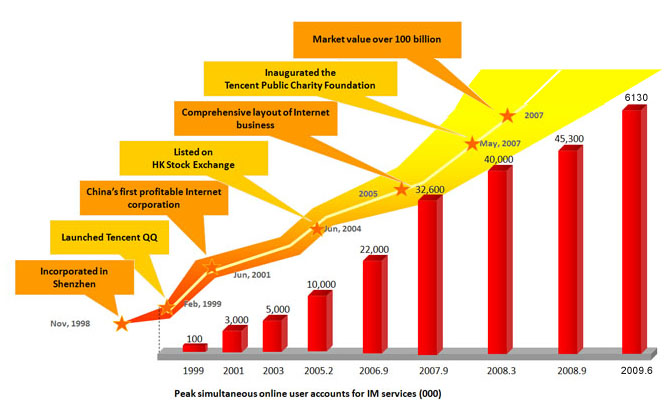 Microsoft’s Windows Live Messenger has over 330 million users around the world and is capable of delivering the infrastructure for approximately 40 million simultaneous conversations, according to statistics provided by the Redmond-based company. These numbers might convince you that Windows Live Messenger is the world’s most popular instant messaging platform. However, there is actually an instant messaging platform from China that is much bigger than MSN in terms of number of users, and you probably would have never heard of that service before.
Microsoft’s Windows Live Messenger has over 330 million users around the world and is capable of delivering the infrastructure for approximately 40 million simultaneous conversations, according to statistics provided by the Redmond-based company. These numbers might convince you that Windows Live Messenger is the world’s most popular instant messaging platform. However, there is actually an instant messaging platform from China that is much bigger than MSN in terms of number of users, and you probably would have never heard of that service before.
With over 1 billion usernames, China’s largest instant messaging network Tencent QQ is at least three times larger than Windows Live Messenger and even two Facebooks couldn’t even keep up on par with it. And this isn’t just it.
The made in China ‘monster MSN’ on Friday reached a significant milestone of an impressive 100 million peak concurrent users online since its debut in 1999, according to a blog post published on its site. QQ saw its number of online users logging on to its instant messaging platform eclipsing the 100 million mark on March 5, 2010 at 19:52:58 (GMT +8).
In response to the remarkable achievement, QQ has expressed their appreciation and thanked its users for helping the platform to reach a new level.
1亿 = 100 million; 1万 = 10,000

In 2007, Tencent, the company that owns QQ, had a market value of over HK$100 billion (US$12.8 billion) and QQ’s peak concurrent online users was 32.6 million during that period. If both the market value and peak concurrent users are linearly related, then Tencent’s market value would have been close to US$40 billion based on QQ’s recent 100 million simultaneous users. This figure is definitely no where near Facebook’s company valuation of just US$11.5 billion.
Meanwhile, China’s 384 million Internet users has helped her clinch the position as the world’s largest online community. In fact, that only takes about one third of its 1.3 billion population.
“Although the rate of (Internet) participation continues to rise, compared to developed countries, China’s rate of Internet participation remains quite low,” said the report from the state China Internet Network Information Center.

